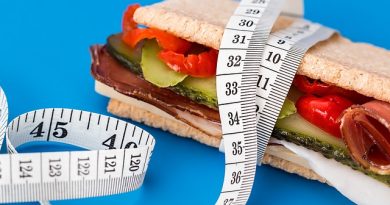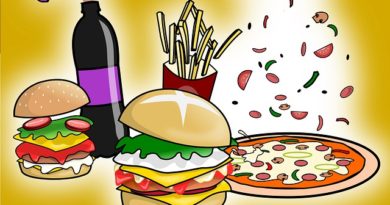Fat-Free Products Can Actually Make You Fatter
We have been programmed to shop for fat-free products at the grocery store, as products with fat have somehow become demonized by society. People assume when you eat fat it will make you fat. Those of you who are educated on nutrition, know this isn’t exactly the case. Yet, there seems to be one thing people aren’t doing when they are picking up their favorite fat-free products at the store, and that is actually looking at the label.
So many times, consumers see marketing on a label and because of the words they read, they assume the product is a better choice. You see labels with huge callouts saying “fat-free” when in actuality it might be one of the fat-free products available, but the manufacturer has added sugar in its place. When it comes to flavoring, fats and sugars are two of the most common ways to sweeten up any product and make it taste better (aside from artificial sweeteners like Stevia, Splenda, etc.). So, when manufacturers say fat-free products, generally you will see a higher amount of sugars. And just the opposite, if you see a product that claims to be sugar-free, it generally has a higher amount of fats added to it.
The “free” part of the label claims can be quite deceiving for consumers who don’t know any better and actually trusts a brand. What I’ve come to learn over the years is not to believe anything the label or marketing materials say. When things are removed, other ingredients are added in their place. It becomes what’s the better choice of two evils more times than not. Now, researchers are jumping in to give their two cents as well on the topic.

Disclaimer: This article is for informational purposes only and is not meant to treat or diagnose any condition. It is recommended that you speak with your doctor before starting any exercise program, changing your daily nutrition, or adding any supplements to your regimen.
Fat (Not PHAT) Research on Fat-Free Products
As with many studies these days, researchers first test on rodents—this study is no different. Researchers took lab rats and fed them a diet that was high in sugars and low in fat or a diet high in both sugar and fat and then compared them to rats they fed a well-balanced diet (three groups in all). They studied the rats over the course of a four-week period and checked their weight, body composition, caloric intake, as well as their fecal matter (yes, poop).
Obviously, at the end of the study, the rats who followed a well-balanced diet were the healthiest of all the groups studied. The researchers noted that the groups that consumed the high-sugar, low-fat and the high-sugar, high-fat had the greatest change in body fat. Not only were their body fat percentages increased, but the high-sugar, low-fat group showed an increased risk of fatty liver disease due to the liver fat that accumulated over the course of the four weeks.
RELATED: Good Sugar vs. Bad Sugar — Do You Know the Difference?
Another finding was that the rats who followed a high-sugar diet had more health issues than any other group studied. These rats showed an increase in body fat, had brain and intestinal tract inflammation, and as I just mentioned, some were even shown to have liver damage due to the high amounts of sugar being consumed. They also mentioned that due to the brain inflammation which can be long-term, it disrupts the signals being sent that cause the sensation of satiety. This causes the rats to eat more than they should, which also leads to weight and body fat increases.
One researcher mentioned, “Most so-called diet products containing low or no fat have an increased amount of sugar and are camouflaged under fancy names, giving the impression that they are healthy, but the reality is that those foods may damage the liver and lead to obesity as well. What’s really troubling in our findings is that the rats consuming high-sugar, low-fat diets didn’t consume significantly more calories than the rats fed a balanced diet. Our research shows that in rats fed a low-fat, high-sugar diet, the efficiency of generating body fat is more than twice as high—in other words, rats consuming low-fat high-sugar diets need less than half the number of calories to generate the same amount of body fat.”
Click here to continue reading…


*Disclosure: This article may contain affiliate links or ads, which means we earn a small commission at no extra cost to you if you make a purchase through these links. These commissions help support the operation and maintenance of our website, allowing us to continue producing free valuable content. Your support is genuinely appreciated, whether you choose to use our links or not. Thank you for being a part of our community and enjoying our content.
PLEASE CONSIDER SHARING THIS ON YOUR SOCIAL MEDIA TO HELP OTHERS LEARN MORE ABOUT THIS TOPIC.





